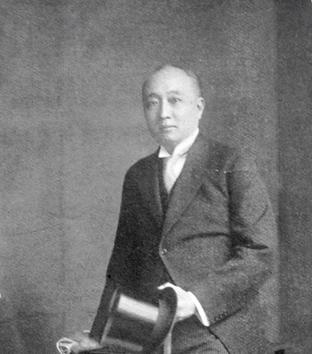
1871 — 1941
Song Ong Siang
Singaporean lawyer, church elder, community leader, and writer. Knighted by King George V.
Eldest son of Song Hoot Kiam and Phan Fung Lean, Song studied in Singapore at Raffles Institution and briefly at Christian Brothers’ School (now St. Joseph’s institution). A brilliant student, he finished his studies at the top of his class and was awarded the Queen’s Scholarship. In 1888 he proceeded to England to study law, first at Middle Temple and then at Cambridge. This he did with distinction, winning more scholarships and awards. Five years later he was called to the bar. Returning to Singapore, he and another schoolmate, also a Queen’s scholar, started a legal firm.
Over the next four decades he was to play an active role in Community service, seeking to uplift the welfare of the Straits Chinese and to promote female education. In 1894 he produced the first Romanized Malay-language newspaper, Bitang Timor. However, due to poor support, it survived for less than one year. Three years later, together with another prominent leader named Lim Boon Keng, he began the Straits Chinese Magazine, which ran for 11 years. He also helped found the Singapore Chinese Girls’ School, Chinese Philomathic Society, Straits Chinese British Association, and Chinese Volunteer Corps (where he rose to the rank of captain).
He became a nominated member of the legislative council and was knighted by King George V in 1936, the first Chinese in Singapore and Malaya to receive such an honor. His monumental 600-page book, One Hundred Years’ History of the Chinese in Singapore, covers the period 1819-1919 and was published in 1923. It remains an invaluable work of reference.
Song belonged to the oldest Straits Chinese church in Singapore, now known as the Prinsep Street Presbyterian Church. He remained a devout Christian and served as church elder for many years. He sang in the choir, edited the church magazine, and occasionally preached from the pulpit. The Chinese Christian Association, formed in 1889 to encourage members to take a support. Although its regular activities were held at Song’s own church, its doors were open to all. Through its fortnightly lectures, Bible classes, debates, reading facilities, and music and drama presentations, many young Christians were helped and a number came to the faith.
Attribution
This article is reproduced, with permission, from A Dictionary of Asian Christianity, copyright © 2001 by Scott W. Sunquist, Wm. B. Eerdmans Publishing Co., Grand Rapids, Michigan. All rights reserved.
Sources
- Cook, J. A. Bethune, Sunny Singapore (1907). Song Ong Siang, One Hundred Years' History of the Chinese in Singapore (1923). Prinsep Street Presbyterian Church, 150 years of Faithfulness, 1843-1993.
About the Author
General Secretary, Fellowship of Evangelical Students, Singapore, Retired, Republic of Singapore


